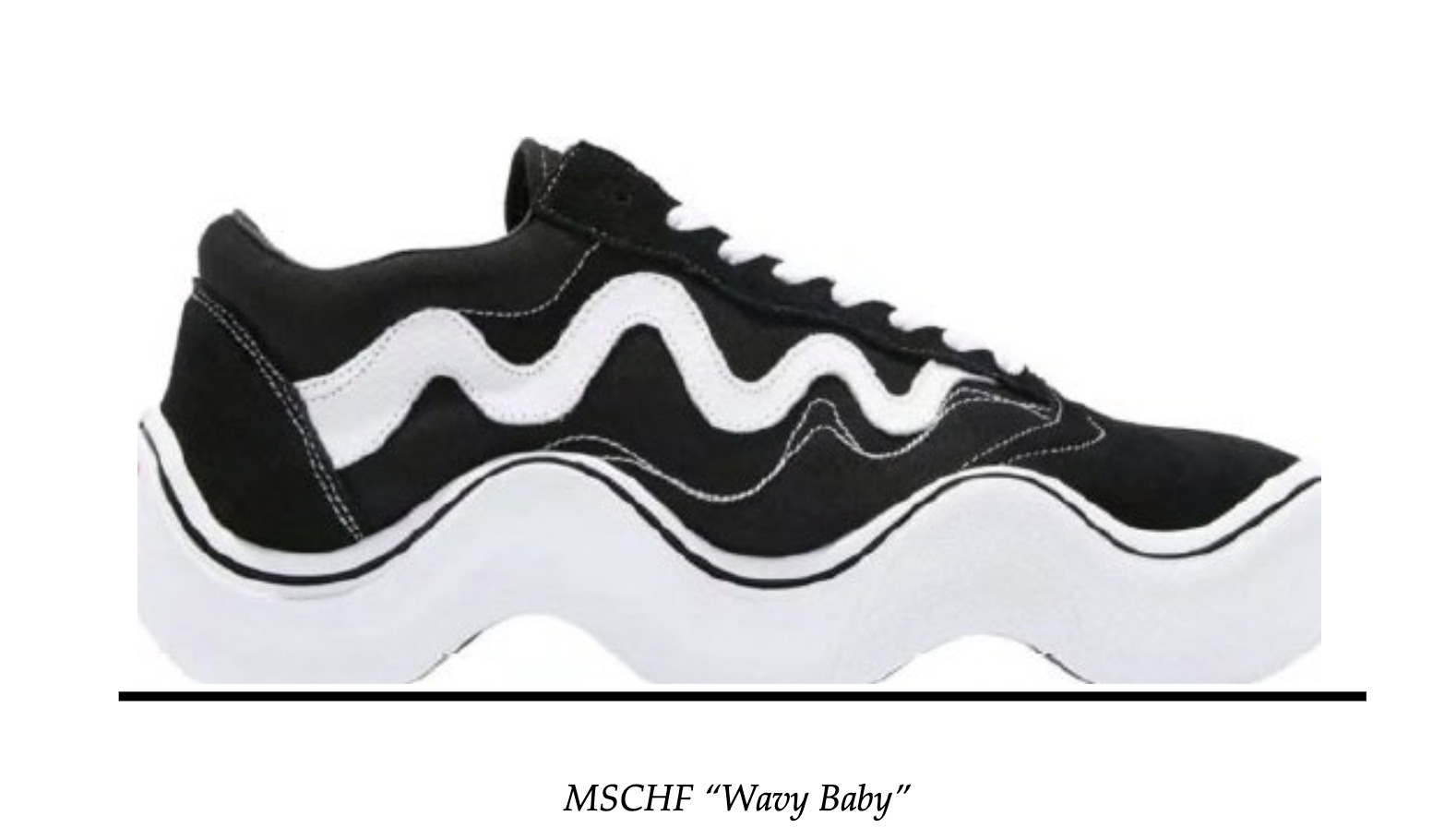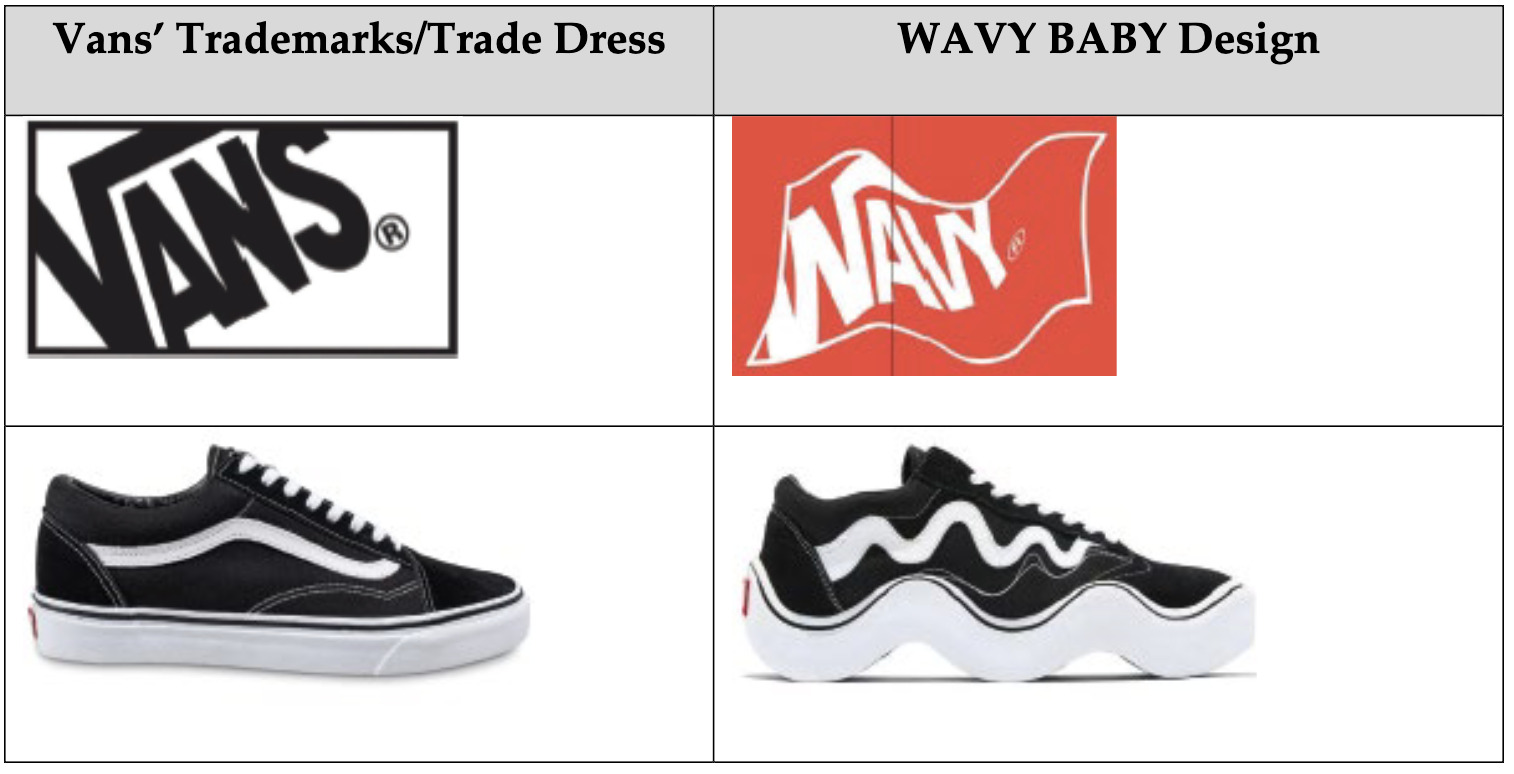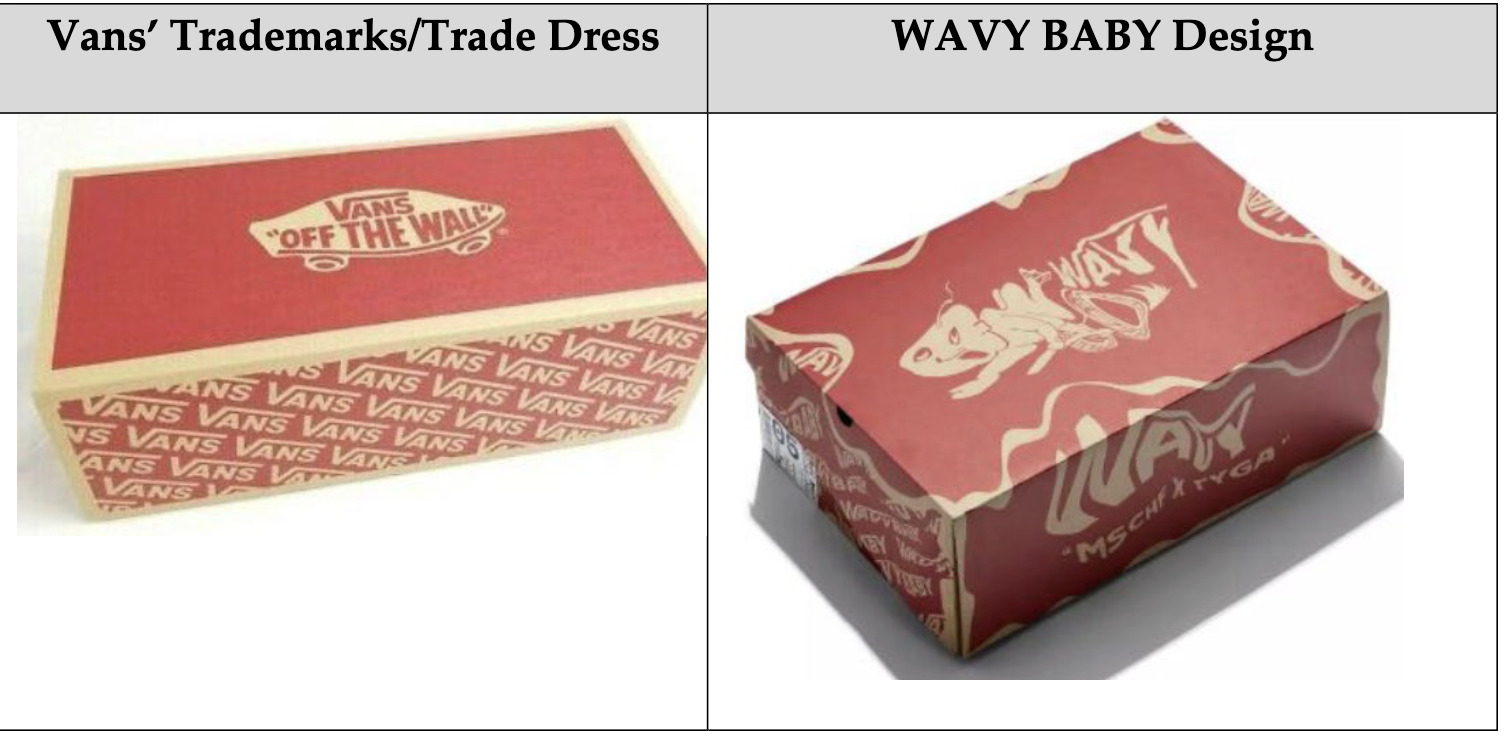Second Circuit Upholds Injunction for Vans Based on Jack Daniel’s Ruling
“Since ‘MSCHF used Vans’ marks in much the same way that VIP Products used Jack Daniel’s marks—as source identifiers,’ MSCHF’s argument that its parodic messages deserves special First Amendment scrutiny under Rogers is foreclosed, said the Second Circuit.”
The U.S. Court of Appeals for the Second Circuit today invoked the Supreme Court’s decision in Jack Daniel’s Properties v. VIP Products to affirm a district court’s finding that MSCHF Product Studio, Inc.’s shoe, the Wavy Baby Sneaker, likely infringed Vans, Inc.’s Old Skool shoe. The Second Circuit ultimately affirmed the district court’s grant of a preliminary injunction and temporary restraining order for Vans.
The Wavy Baby Sneaker is made by MSCHF, a Brooklyn-based art collective that “has recently focused its artistic expression on ‘sneakerhead culture.,’” according to the Second Circuit opinion. Upon release of the Wavy Baby Sneaker, MSCHF’s co-Chief Creative Officer said in a statement: “’The Wavy Baby concept started with a Vans Old Skool sneaker’ because no other shoe embodies the dichotomies between ‘niche and mass taste, functional and trendy, utilitarian and frivolous’ as perfectly as the Old Skool.”
A comparison between the shoes and their branding/ packaging are shown below:
Images from Second Circuit opinion
Vans sent a cease and desist letter to MSCHF in April 2022 but the company continued the launch and dropped 4,306 Wavy Baby shoes on April 18, 2022. The shoes sold for $220.
The district court determined that “Vans had shown a significant danger of consumer confusion, Vans would likely prevail on its trademark infringement claims; it had shown that it would suffer irreparable harm without injunctive relief; and the balance of hardships and public interest supported preliminary relief.” The court said MSCHF’s distortion of the Old Skool logo on the Wavy Baby shoe was not sufficient to deter consumer confusion and that Vans’ evidence that many consumers believed the new shoe to be a collaboration between Vans and MSCHF was convincing. It rejected MSCHF’s contention that the Wavy Baby shoe was intended as a collector item rather than to be worn, pointing to evidence that the company held some shoes back in case people ordered the wrong size.
MSCHF also argued the Wavy Baby shoe was “a parodic work of artistic expression…subject to special First Amendment protections rather than the traditional likelihood of confusion test.” Here, writing before the Jack Daniel’s decision had been handed down, the district court cited to Harley Davidson, Inc. v. Grottanelli, 164 F.3d 806, 812 (2d Cir. 1999)), Cliffs Notes, Inc., Bantam Doubleday Dell Publ’g Grp., Inc., 886 F.2d 490, 494 (2d Cir. 1989)) and Louis Vuitton Malletier, S.A. v. My Other Bag, Inc., 156 F. Supp. 3d 425, 435 (S.D.N.Y. 2016), aff’d, 674 F. App’x 16 (2d Cir. 2016)) to support its position that, while courts have recognized that some marks should be allowed for “parodic commentary,” they also “have not hesitated to prevent a manufacturer from using an alleged parody of a competitor’s mark to sell a competing product.”
The Second Circuit in its discussion then applied the High Court’s guidance in Jack Daniel’s, explaining that the Rogers v. Grimaldi test, which allows for courts to apply the traditional infringement inquiry more narrowly if the work in question is one of “artistic expression,” does not apply “when the allegedly infringing mark is used as a source identifier—that is, ‘as a designation of source for [the alleged infringer’s] own goods.’”
Since “MSCHF used Vans’ marks in much the same way that VIP Products used Jack Daniel’s marks—as source identifiers,” MSCHF’s argument that its parodic messages deserves special First Amendment scrutiny under Rogers is foreclosed, said the Second Circuit. Since MSCHF admitted to starting with Vans’ marks, it essentially admitted to benefiting from Vans’ good will and using the marks in a source-identifying manner, added the court.
Turning to the eight Polaroid factors, the Second Circuit agreed with the district court’s analysis except with respect to quality of the defendant’s product compared with the plaintiff’s. On this point, the Second Circuit said that, while the district court’s finding that the Wavy Baby shoes are lower quality is not clearly erroneous, “we do not embrace the district court’s legal conclusion that this factor favors Vans.” The court explained:
“It seems unlikely that consumers would expect the Wavy Baby—a shoe with an obviously uneven sole—to be as comfortable or functional as the Old Skool. But even if the district court erred by weighing this factor in Vans’ favor, this one factor does not change our conclusion that Vans is likely to prevail on the merits of its trademark infringement claim.”
Thus, the Second Circuit found in favor of Vans and agreed with the district court that Vans is likely to prevail on the merits of its trademark infringement claim in light of the likelihood of confusion as to the source of the Wavy Baby shoes, and also said that the district court did not err in requiring MSCHF to escrow its revenues from Wavy Baby sales, and that it was not required to make a bond determination because MSCHF never requested security.
Eileen McDermott
Eileen McDermott is the Editor-in-Chief of IPWatchdog.com. Eileen is a veteran IP and legal journalist, and no stranger to the intellectual property world, having held editorial and managerial positions at […see more]









